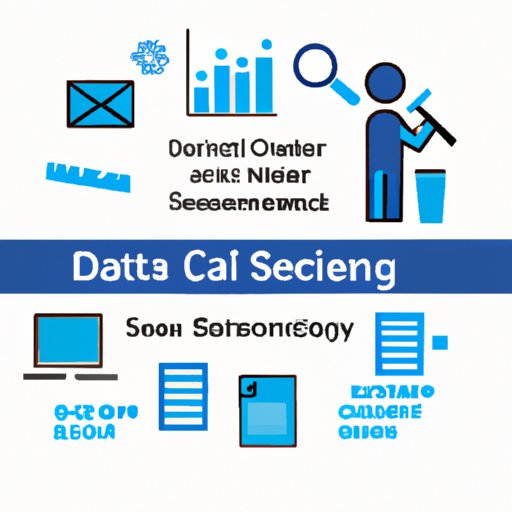Introduction
Data science analysts are professionals who use their technical knowledge and analytical skills to identify trends in data and develop insights for businesses. They help organizations make better decisions by leveraging data and utilizing predictive analytics. This article will explore what a data science analyst does, the skills they need, and how companies can benefit from hiring them.
What Skills Does a Data Science Analyst Need?
Data science analysts need to have a combination of technical knowledge, analytical thinking, and communication skills. In terms of technical knowledge, they should be proficient in programming languages such as Python, as well as statistical software like R. They should also understand databases, cloud computing, and machine learning algorithms. Analytical thinking is essential, as data science analysts must be able to interpret data, draw conclusions, and make predictions.
In addition to these technical skills, data science analysts must be excellent communicators. They need to be able to explain complex concepts to non-technical stakeholders, present results in an easy-to-understand way, and clearly articulate their findings. Communication skills are just as important as technical expertise when it comes to being a successful data science analyst.

Exploring the Role of a Data Science Analyst
Data science analysts play a crucial role in helping businesses make informed decisions. They collect and analyze data from multiple sources and use predictive analytics to create reports and make predictions. They also identify patterns in data and offer insights into how the data can be used to improve processes and products.
Breaking Down the Day-to-Day Responsibilities of a Data Science Analyst
The day-to-day responsibilities of a data science analyst vary depending on the organization. Generally speaking, they are responsible for gathering data from multiple sources, cleaning and preparing the data for analysis, building models to solve problems, and presenting their results to stakeholders. They may also be required to create visualizations to help explain their findings, and use machine learning algorithms to make predictions.

How to Become a Data Science Analyst
Becoming a data science analyst requires a combination of formal education, professional certifications, and hands-on experience. A bachelor’s degree in computer science, mathematics, or statistics is typically required, although some employers may accept applicants with relevant experience in lieu of a degree. Additionally, there are a number of professional certifications available, such as the Certified Analytics Professional (CAP) certification, that can help demonstrate a candidate’s knowledge and skills.
Finally, gaining hands-on experience is essential. Data science analysts should have experience working with different types of data, analyzing data sets, and creating reports. They should also have a good understanding of machine learning algorithms, predictive analytics, and visualization tools.

How Companies Benefit from Hiring Data Science Analysts
Hiring data science analysts has numerous benefits for companies. For one, it increases efficiency by allowing them to quickly and accurately identify trends in data and make predictions. Data science analysts can also help improve decision-making by providing insights into how data can be used to inform decisions. Finally, having a data science analyst on staff can lead to cost savings by identifying areas where money can be saved or reinvested.
The Impact of Data Science Analysts on Business Decisions
Data science analysts can have a significant impact on business decisions. By leveraging data to make smart decisions, they can help organizations identify opportunities for growth and enhance productivity and performance. By having a better understanding of customer needs and behaviors, data science analysts can also help companies create effective marketing campaigns and target the right audiences.
Conclusion
Data science analysts play an important role in helping organizations make informed decisions. They need a combination of technical knowledge, analytical thinking, and communication skills to be successful. In addition to collecting and analyzing data, they must also be able to create reports, make predictions, and present their results to stakeholders. Becoming a data science analyst requires formal education, professional certifications, and hands-on experience. Companies benefit from hiring them by increasing efficiency, improving decision-making, and saving costs. Ultimately, data science analysts have the power to transform businesses by leveraging data to make smart decisions and identify opportunities for growth.
(Note: Is this article not meeting your expectations? Do you have knowledge or insights to share? Unlock new opportunities and expand your reach by joining our authors team. Click Registration to join us and share your expertise with our readers.)
